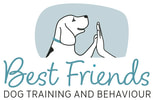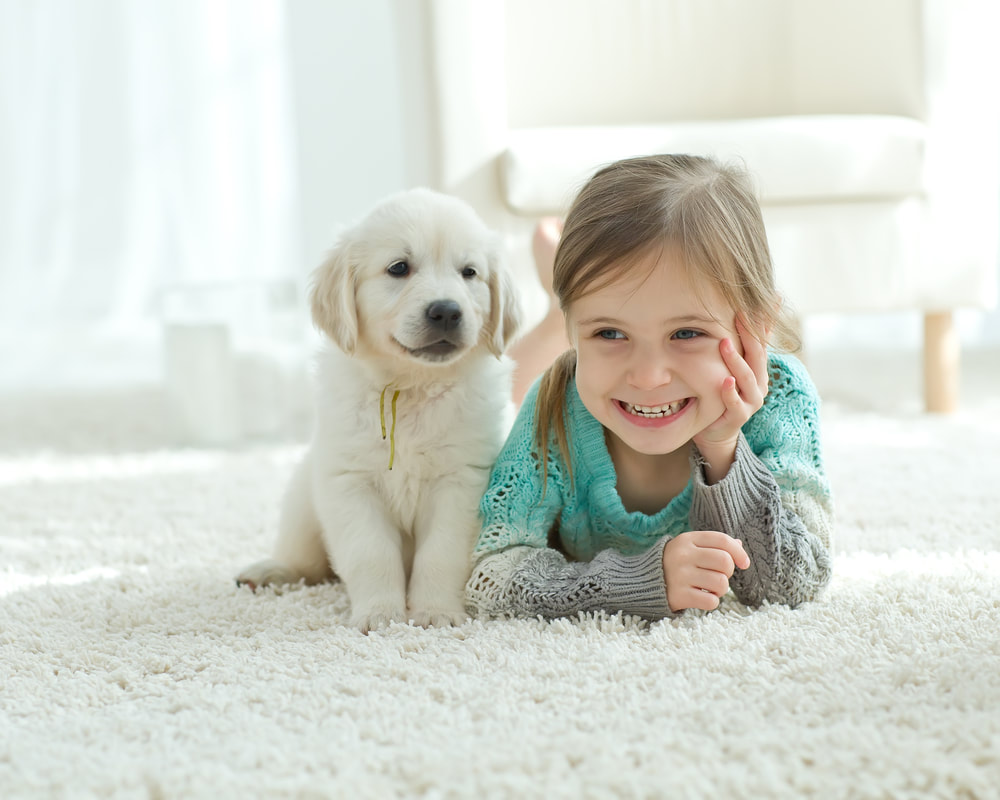SOCIALIZING WITH PEOPLE: Learning about people is one of the main goals of socializing your puppy. How people look, move, sound, smell, and the kinds of things people do is important information for your pup. You want your puppy to know that people are kind and can be trusted. If your pup isn't sure about people, go slowly.
Puppies also need to learn how to be polite members of human society, including greeting people politely, behaving appropriately in different situations, and bite inhibition.
Being housetrained and having good house manners are also part of the human/dog relationship. A well mannered, well socialized pup is welcomed in many places. A dog who is out of control may be lovable but you may be asked to leave him at home when visiting friends and family.
How does your dog feel about people? Is he interested in interacting with people and gladly does so on his own? Or does your pup need to be coaxed or prompted to interact? Does your pup greet people but after a brief time, disengage? Dogs vary a great deal in their natural sociability and how much interest they have in meeting and interacting with people. If you understand your dog's preferences, you can help him.
Some pups may prefer women to men or children to adults. Some pups may worry about people with hats or deep voices. Your puppy might love everyone or be very specific about who she considers a friend. Some dogs enjoy crowds while others prefer quieter settings and one on one contact. Some dogs show a strong preference for people they know well and are cautious with strangers. Help your dog feel more comfortable around a broad range of people.
If your dog is worried about interacting with people in any way, help build the dog's skills and confidence. First, reduce anxiety. Socialization outings are not fun when you're worried. Second, being worried can set your pup up to experience socialization in a way you don't intend. Instead of having a pleasant, confident experience, your pup may be learning that the world is a scary place.
Be aware of what overstimulates and excites your dog too. This includes people who may mean well but encourage your dog to jump up, bark, lunge, pull you on leash, act inappropriately or even nip at them. They might even say to you, "Oh, he'll grow out of it." In those situations, it's important to trust your own judgement and set limits for other people about how they may interact with your puppy.
Many pups are scared of the vet's office and the groomers. Both have unusual smells that dogs quickly learn to associate with the people there. Take time to make brief but really enjoyable visits just for socialization purposes, with excellent treats and lots of praise to make these visits less stressful.
Again, always believe your dog's behaviour and listen to what your puppy's behaviour is telling you. If your puppy sends signals that you ignore or misunderstand, it can be confusing and scary. If repeated often enough, it can lead your dog to believe that you aren't listening and that you won't help when he is confused and scared.
Puppies also need to learn how to be polite members of human society, including greeting people politely, behaving appropriately in different situations, and bite inhibition.
Being housetrained and having good house manners are also part of the human/dog relationship. A well mannered, well socialized pup is welcomed in many places. A dog who is out of control may be lovable but you may be asked to leave him at home when visiting friends and family.
How does your dog feel about people? Is he interested in interacting with people and gladly does so on his own? Or does your pup need to be coaxed or prompted to interact? Does your pup greet people but after a brief time, disengage? Dogs vary a great deal in their natural sociability and how much interest they have in meeting and interacting with people. If you understand your dog's preferences, you can help him.
Some pups may prefer women to men or children to adults. Some pups may worry about people with hats or deep voices. Your puppy might love everyone or be very specific about who she considers a friend. Some dogs enjoy crowds while others prefer quieter settings and one on one contact. Some dogs show a strong preference for people they know well and are cautious with strangers. Help your dog feel more comfortable around a broad range of people.
If your dog is worried about interacting with people in any way, help build the dog's skills and confidence. First, reduce anxiety. Socialization outings are not fun when you're worried. Second, being worried can set your pup up to experience socialization in a way you don't intend. Instead of having a pleasant, confident experience, your pup may be learning that the world is a scary place.
Be aware of what overstimulates and excites your dog too. This includes people who may mean well but encourage your dog to jump up, bark, lunge, pull you on leash, act inappropriately or even nip at them. They might even say to you, "Oh, he'll grow out of it." In those situations, it's important to trust your own judgement and set limits for other people about how they may interact with your puppy.
Many pups are scared of the vet's office and the groomers. Both have unusual smells that dogs quickly learn to associate with the people there. Take time to make brief but really enjoyable visits just for socialization purposes, with excellent treats and lots of praise to make these visits less stressful.
Again, always believe your dog's behaviour and listen to what your puppy's behaviour is telling you. If your puppy sends signals that you ignore or misunderstand, it can be confusing and scary. If repeated often enough, it can lead your dog to believe that you aren't listening and that you won't help when he is confused and scared.


